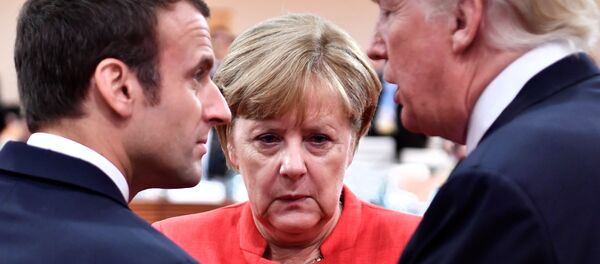MOSCOW (Sputnik) — On Thursday, US Senate approved a bill that would impose sweeping sanctions on Russia and seeks, in particular, to target companies that invest in Russian energy projects. The bill now has to be either signed or vetoed by US President Donald Trump.
France and Germany have so far spoken out against the bill as it affects European industries while advancing US commercial interests.
"The fact remains that we will not, in any case, accept an extraterritorial use of these sanctions of the United States against European firms," Gabriel said.
"It now depends on President Trump to decide what happens next," Gabriel said.
The potential introduction of new sanctions has already raised concerns in the European Union, which fears that the unilateral punitive measures could threaten the bloc's economic interests.
The bill suggests that US President could impose sanctions on those who invest more than $5 million a year in the construction of Russian export pipelines or $1 million at once. The sanctions could also apply to those who provide goods, services or any other type of support to these projects, of corresponding market value. The bill also stressed that the United States would continue to oppose the construction of the Nord Stream 2 natural gas pipeline.
The Nord Stream 2 project presumes the construction of two gas pipelines with a combined annual capacity of 55 billion cubic meters of gas. The new pipeline is planned to be laid along the existing Nord Stream pipeline route from the Russian coast through the Baltic Sea, on to a hub in Germany.




